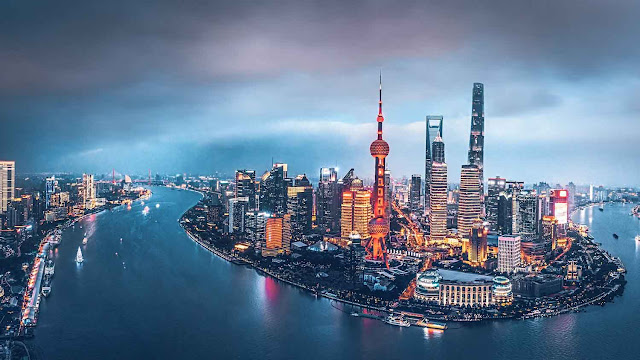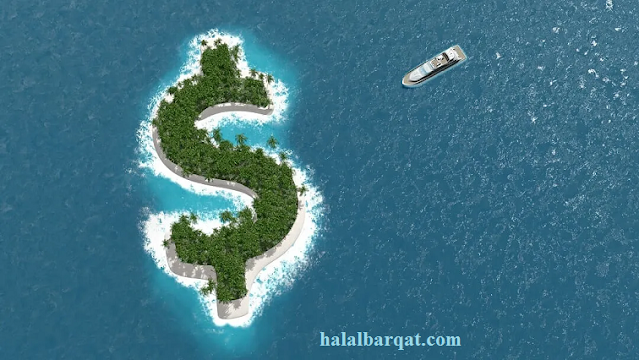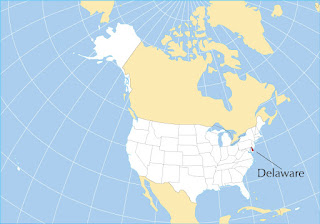Sikhs Religious Conversion to Christianity in Punjab, Case Study
Live Case Study on Religious Conversion of Sikhs to Christianity in Punjab
These days religious conversions of Punjabi Sikhs to Christianity in Punjab is the talk of the time. Religious conversion is a normal conduct if natural but when forceful or by cunning means it is that one's own religion is their own and everyone in India were happy until they were forced to convert by evil forces in cunning manner. As people start following other religions they also get to follow the leaders of that other religion who is in fact never their own close one. They are usually overseas powers who run the religion and then after accepting the religion he also starts following the commands of the religious leaders of that religion thereby tactfully getting enslaved. Thus, any respectable person does not want to be duped to follow other religion being manipulated by other cunning people. Conversion is good when natural and not nefariously influenced by evil forces with malicious intent.
 |
| Mission finding Sikhs as easy prey to conversion with the aid of their cunning tactics |
The crimes against humanity by the missionaries are very common. Once also a 12 class studying 17-year-old girl at a Christian missionary school in Tamil Nadu's Thanjavur district was allegedly abused and forced to do domestic chores by the hostel warden where she was staying.
In a video that was viral on social media, the girl
alleged that she was also constantly forced to quit her very own religion and take
up Christianity.
Allegedly, the
juvenile attempted to take off her life as she could not bear the
cruelty. She did not respond to the medical treatment by the doctors and died in Thanjavur
Medical College Hospital.
The warden of the missionary school hostel was arrested and a case registered under IPC section 305 (abetment of suicide of child) and sections 75 (punishment for cruelty to child) and 82 (1) (indulging in corporal punishment with the aim of disciplining a child) of the Juvenile Justice Act in India.
 |
The judge noted that prior to her death, the girl recorded a video, since shared on social media, in which she claimed that the school management had coerced her to convert to Christianity.
The facts need to be traced as this is not one incident. Such gruesome forced conversion acts are very common.
It is very necessary to trace what is happening
in the case as the missionaries are powerful and they can easily hush up the
matter and owing to corruption in India it is very easy.
Mostly these incidents never come to light, and when they do they are not traced further and media is hushed by influence as is evident in this case. Now the media is silent over it. When people forget matters like these they continue.
How is it easily possible for evangelists to perform undue and deceptive conversion of Sikhs to Christianity?
The evangelists come in guise of ordinary people and create memes and share information which are deceptive. They are aligned with their partners who may sometimes also be group admins on public platforms. One of the tactics is that they create memes in such a matter with image of a popular person and write a quote next to it which he might have never said. They also sometimes distort the meanings of what they said and plant their own meanings.
Some weak minded people may start believing them and start following them due to the hatred they cultivated in them for their own dignitaries. This way the victims become self harming and start following them who are self proclaimed ‘revered’.
The following chat in Public group is in response to the Voice of Veracity holy post of unity and equality facts on Castism Reality and Propaganda in India
 |
| The evangelist names RSS out of nowhere to give fake impression |
The cunning evangelist posted in response such messages that give a totally different impression about the message. As many people would not open the link and read what is in it and will believe on the impression which the evangelist wants to put. This happens as when such people see that the caste system they are imposing by bogus claims in media and through their agents will collapse they will get no chance to convert.
People would be strong in their own religion which they held naturally, originally and without and one's impact or slavery by leaving their own religion and converting to others'. These people play such tactics. In other words they try to create devil out of the divine. And as ignorance is dangerous, the people who do not see the actual post on the link will fall to the words of such evil agents.
The evangelist asks proof of caste when no such claim was
made. He quotes many smiriti which
was itself summarily denied even if some text is not in sync with the religious
book’s texts. Out of nowhere he brings things as people read what is in front
of them and do not bother to open the resources and read.
 |
| A tactfully designed meme by named: Dr. Rev. Jitendra Kumar |
They also ask to share such memes (refer to the hand written text at the bottom of the image, above, encircled in red) so that the hatred is spread among the mass and the influenced weak minded people fall for them and get enslaved. This also proves they are ready with such memes and post them immediately as and when they get an opportunity.
The evangelists keep ready and post images like this in groups
by pretending to be good but when no one thinks of caste or religion in blood
banks then why to post it memes showing blood bank? This is to fill hatred in
sub conscious mind of people and victimize them to make them ready to convert.
 |
| The above image posted by evangelist in Chat |
Now, these evangelists may not be alone but have their aides in different sort of hides. As the evangelist has created the environment with his fake words, his aide comes pretending to be a woman and starts fighting, now again giving an impression to the public there in group that whatever the evangelist is saying must be true. Now, as people are not going to real the information on the link, they will just believe her or the only information which is in the group. This is how they plan and perform things with nefarious intent.
 |
| The evangelist starts posting undue messages in response to the link |
Response of the evangelist’s aide when confronted directly
The evangelist aide pretends to be ignorant, then tries to create a fake environment stating that the confronting person was harassing a woman, just out of nowhere. When asked to show screenshots, she understood this tactic will not work. She started evading the topic of this woman and ran into the question about herself/ himself.
The evangelist aide says she confronted the person as he was chatting with a lady while there was no lady in question at all, and she herself actually never confronted the person regarding any lady in the group or anywhere anytime earlier but just in this chat.
Evangelist aide pretended to be innocent and unaware of the facts what she herself did.
 |
| The image shared by her partner evangelist showed to her |
 |
| Again aide playing innocent and trying to hide and bring feel good factor, totally professional |
The degenerated evangelists and those working for them try to play with the minds of people and pretending humanity and all things known good to humanity they play their con game.
 |
| When found no way out ran way and never returned until this post |
The evangelist aide runs away by pretending misconception. She tried everything, bringing an imaginary woman, then pretending to be innocent. At last, ran away to protect her and hide her faults.
Are Sikhs and Hindus in documents, actually Christians by faith?
Officially,
Sikhs make up about 58%, Hindus 38%, Muslims 2% and Christians a little over 1%
of Punjab population per the available census data. However, churches are a
common sight across the state of some 30 million people.
Female Church Members Group attack BJP leader Neetu Khurana (Dhakoli, Punjab)
According to the census of 2011, there are said to be 3.5 lakh Christians living in Punjab, India, or 1.3% of the state's total population. However, several observers, demographic specialists, and Christian organisations assert that there may be 1.94-2.77 million Christians residing in Punjab, making up between (7%–10%) of the state's population, however the veracity of that assertion is yet unknown. The other religions practiced in the state include Hinduism, Islam, and Sikhism.
Missionaries William Reed and John Lowrie travelled there in 1834. Both the Roman Catholic diocese of Jalandhar and the Church of North India's Diocese of Amritsar have their headquarters in Punjab.
There are countless communities that are home to a Christian church.
The number of Christians in the then-unified Punjab increased significantly between 1881 and 1891.
The All India Conference of Indian Christians, which promoted
swaraj and opposed the partition of India, was a group representing the
Christians of colonial India who were engaged in the INC and the larger Indian
independence struggle.
|
Church
Denominations |
||
|
United
Churches of North India (UCNI) |
Protestant
Church |
Methodist
Church |
|
Presbyterian
Church |
Roman Catholic Church |
Eternal Light
Ministries |
|
Kashmir
Evangelical Fellowship |
The
Pentecostal Mission |
Pentecostal
and Independent Churches |
The All India Conference of Indian Christians, which met in Lahore in December 1922 and was heavily attended by Punjabis, decided that Indians should be chosen over foreigners to serve as clerics for the Church in India.
Indian Christians, according to the AICIC, will not put up with any prejudice based on ethnicity or skin tone.
Are Punjabis welcoming religious conversion of Sikhs to Christianity?
Religious conversion is the motto of missions. If one searches in te media can find in different guise converters come and go and they try what not for converting people to enslave their nation for their religious masters.
Osho exposed so called mother Teresa in his different speeches and even wrote to her on child adoption and discrimination among humans.
There have been accusations against Bishops for child and women abuse about which even Pope could not hide and had to publicly apologize.
Different media channels could not hide facts about her despite the wealthy Church exerting fully to bring media in its favor.
Thus, all ythese adversities people never wanted in Punjab, but who fall victim, are brain washed.
On 31 August 2022, the Sikh leader of the Akal Takht alleged that Christian missionaries were forcibly converting people of the state and sought an anti-conversion law be brought about into the legal books.
On the same day,
a pastor's car was set ablaze in Thakarpur village of Tarn Taran district.
|
Punjabi Christians |
||
|
Year |
Percent |
Number |
|
2001 |
1.20 |
2,92800 |
|
2011 |
1.26 |
3,48230 |
In 2021, this data seems to have grown too much and situation of out of hands for those disliking undue conversions. The information is awaited for 2021 census, and till 2022 form any reliable sources.
Jathidar says that Police complaints have been filed by Sikh that missionaries are practising forcible religious conversions by misleading the public, but the administration never takes any action. Sikhs are not against any religion or its values, but against frauds being committed in the name of religion. He also said that he is against pakhandwad or miracles and cures but superstitions are being used to lure Sikhs.
He
asserted that missionaries supported by foreign powers were targeting poor
Sikhs and Hindus from lower social levels. It is a border state, Punjab. It is
concerning if such forced religious conversions are occurring in a border state
with the help of foreign agents. Forced religious conversions will no longer be
accepted, he declared.
 |
| Christian in the hide of Sikh making conversion easy |
Despite
the fact that coercive religious conversions are illegal under Indian law, it
is surprising to see how these people are conducting a widespread campaign,
particularly in Punjab's border region.
Prior
to now, the Akal Takht Jathedar's complaints regarding religious conversions
had been brought to the National Commission for Minorities' (NCM)
attention suo motu.
On
June 16, it had also called a gathering of representatives from the Sikh and
Christian communities to talk this matter.
What is the latest district wise data on percentage of Christians in Punjab?
District wise data on percentage of Christians in Punjab:
|
Distt. Of Punjab |
% of Christians |
|
Amritsar |
5.18 |
|
Barnala |
0.10 |
|
Bhatinda |
0.18 |
|
Faridkot |
0.20 |
|
Fatehgarh Sahib |
0.28 |
|
Firozpur |
0.95 |
|
Gurdaspur |
10.68 |
|
Hoshiarpur |
0.94 |
|
Jalandhar |
3.19 |
|
Kapurthala |
0.67 |
|
Ludiana |
0.47 |
|
Mansa |
0.12 |
|
Moga |
0.33 |
|
Muktsar |
0.19 |
|
Patiala |
0.30 |
|
Rupnagar |
0.31 |
|
Mohali |
0.57 |
|
Sangrur |
0.15 |
|
Nawanshehar |
0.24 |
|
Tarn Taran |
0.54 |
|
Total in Punjab Districts
above |
1.26 |
Is there demographic fear due to rapid Christianity spread?
Concerns about demographic shift are raised by a
spike in Christianity in Punjab from 1.5% to a potential 15%, with
"stealth" conversions being the main issue.
The Christian converts' identity dilemma was
discussed in February as well. According to Rohit Khokkar, the leader of AAP
and a former BSP member, 98% of Punjab's Christians are new converts. He had
also accepted Christianity, but for obvious reasons he had not shed his caste
identity.
In numerous videos that have circulated on social media, these pastors can be seen engaging in superstitious 'healing' rituals in front of thousands of attendees at each gathering.
Conclusion
With the intent of religious conversion dangerous people are around kind and holy human beings. Propaganda and treacherous devices are nothing new now. At every step there is fraud, accusations, bogus claims which innocent mind may not be able to read withing due time. People need to be cautious enough as religiously blind and those working in greed from them can use any device to treat naive people. As they are programmed for this they can do anything and everything, thus in these cases extra caution is required as one may get implicated in fabricated case as the evangelist aide tries to level woman harassment charges and what not. With such examples, kind and innocent people should be wary from now onwards.
[SHARE in Public Interest to Save Human Lives >>
























